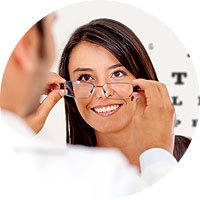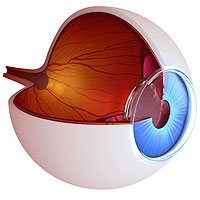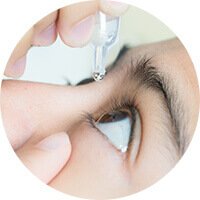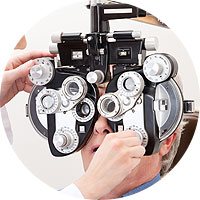Let’s be honest: Being a parent is hard. You have to put all of your time and energy into raising a good citizen, and you also have to worry about your child’s health and well-being. It can be overwhelming at times, but you can make things easier for yourself by learning about pediatric eye care. The more you know about eye care for your child, the easier it will be for you to make the right decisions. Then, you can take one stressful item off your plate.
The First Eye Exam
New parents spend most of their time adjusting to eating and sleeping schedules. While that is time-consuming, they also need to take the time to schedule an eye exam. Pediatric eye care should begin when the child is merely six months of age. At that point, the child needs a comprehensive exam to make sure that everything is functioning as it should.
The Second Exam
Your child can wait awhile for the second exam. The American Optometric Association recommends that children have the second eye exam at three years of age. This will allow your Wilkes-Barre eye doctor to make sure that your child’s eyes are progressing as they should. If your child has any vision problems, the eye doctor can work to correct them before he or she enters school.
School Days
When your child reaches the age of five or six, he or she will be about ready to enter kindergarten – that’s when you need to start scheduling regular exams. Schedule one right before your child enters school, and then schedule subsequent exams every two years. If your child has vision issues and needs contacts or eyeglasses, you will need to schedule exams every year.
Why Pediatric Eye Care is So Important
You might not have gone to the eye doctor when you were a kid, and you turned out fine, right? That might be the case, but poor eyesight can hinder learning. If your child can’t see, he or she won’t be able to see the chalkboard at school or read books and notes. Poor vision can also lead to bad hand-eye coordination, which can impede development. Your Scranton, Pennsylvania pediatric eye doctor will help your child get on the right path, both from an educational and development standpoint.
Talking to Your Eye Doctor
While your eye doctor will conduct a thorough exam, it is still important that you provide important information. Let your eye doctor know if your child was premature or experienced delayed motor development. You should also alert your eye doctor about frequent eye rubbing, excessive blinking, or the inability to fix on objects. Poor eye tracking skills should also be discussed.
A pediatric eye doctor can help you ensure that your child is ready for school and for life. Eyes are very important, so be sure to start early with eye exams. Get in the habit of going to the eye doctor on a regular basis so the doctor can fix problems early, before they become serious.

















